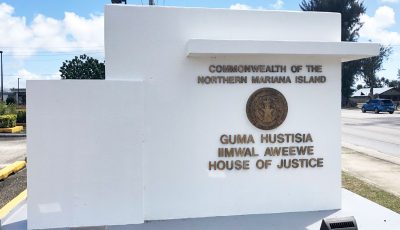High court vacates convictions, orders new trial
On Dec. 30, 2015, the Supreme Court issued Commonwealth v. Johnson, 2015 MP 17, vacating Dan Kalikolehau Johnson’s convictions for one count of sexual abuse of a minor in the second degree, attempted sexual abuse of a minor in the second degree, and assault and battery; as well as two counts of disturbing the peace relating to two alleged incidents in May 2009 and June 2012 for alleged conduct involving Johnson’s girlfriend’s daughter. Johnson argued, among other things, that the trial court erred by admitting several hearsay statements and by failing to issue a limiting instruction for fresh complaint evidence. Additionally, Johnson argued the cumulative impact of multiple trial errors necessitated reversal.
The Commonwealth charged Johnson with sexual abuse of a minor in the second degree, assault and battery, and disturbing the peace for the alleged conduct in May 2009. Although the minor initially complained to her mother, a police officer, and an individual at the prosecutor’s office, at trial the minor denied that Johnson engaged in the alleged conduct. The Commonwealth therefore asked the minor to testify as to the details of her conversations with the three other individuals regarding the incident. Johnson was also charged with attempted sexual abuse of a minor in the second degree and disturbing the peace for alleged conduct occurring in June 2012. At trial, the minor’s friend and a social worker testified that the minor complained of Johnson’s conduct.
The trial court instructed the jury to consider prior inconsistent statements for the truth of the matter asserted in the initial statement as well as for the purposes of assessing the witnesses’ credibility. The jury convicted Johnson of sexual abuse of a minor in the second degree and attempted sexual abuse of a minor in the second degree. The trial court convicted him of assault and battery and two counts of disturbing the peace. Johnson was sentenced to serve 10 years in prison and a five-year suspended sentence.
The Supreme Court reversed Johnson’s convictions relating to the alleged conduct in May 2009 because the trial court erroneously admitted several hearsay statements for the purpose of proving Johnson’s alleged conduct. The trial court’s error required reversal because of the overall lack of admissible evidence demonstrating Johnson’s conduct, along with the Commonwealth’s lengthy references to hearsay testimony during closing argument that highlighted the importance of the testimony to the Commonwealth’s case. As to the convictions relating to the June 2012 conduct, the high court concluded reversal was warranted because of the cumulative impact of multiple trial errors. Consequently, the high court vacated Johnson’s convictions and ordered a new trial.
The Supreme Court’s full opinion is available at http://www.cnmilaw.org/supreme15.html. (NMI Judiciary)



























